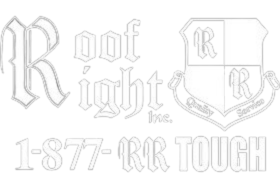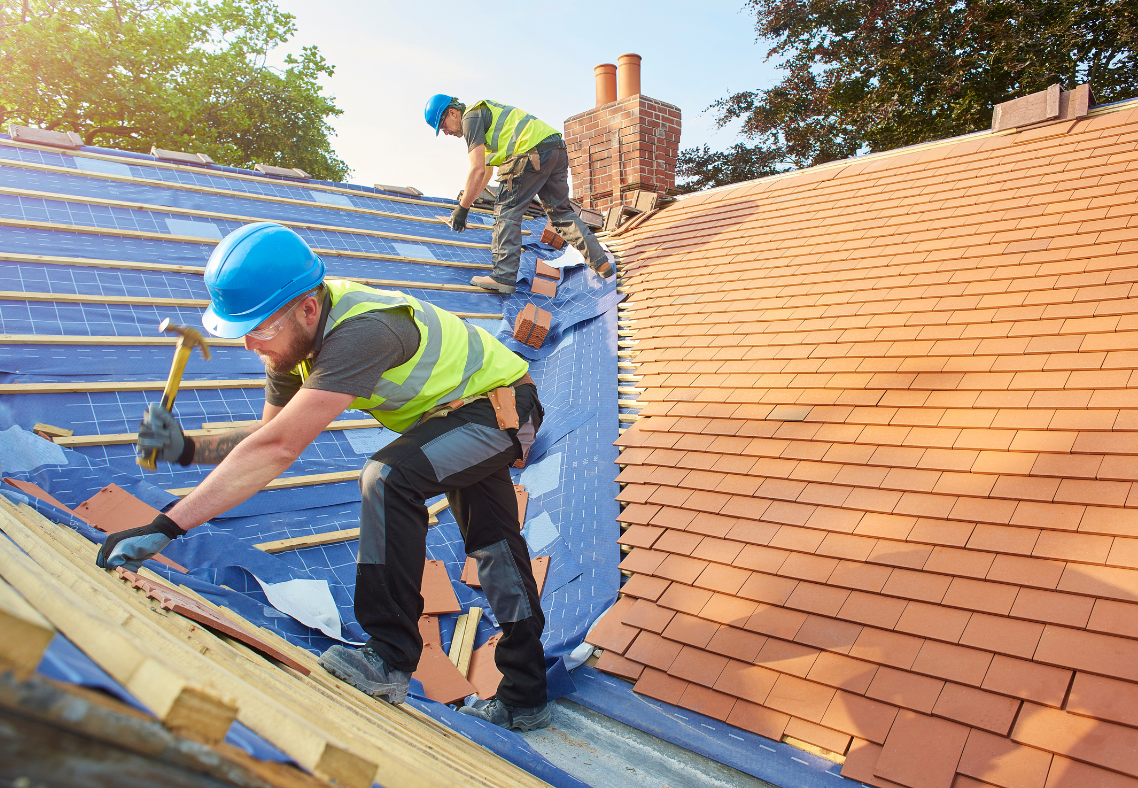What Is The Best Underlayment For A Roof In Maryland?
Roof Right: Exterior Home Remodeling Specialists in Maryland Contact UsSchedule A Free EstimateWhen it comes to protecting your home in Maryland, choosing the right roofing materials is essential. While many homeowners focus on selecting the best shingles, one of the most important yet often overlooked aspects of a roof is the underlayment. This critical layer serves as a secondary barrier between your shingles and the roof deck, providing added protection against moisture, wind, and other elements. Given Maryland’s varying weather conditions—including humid summers, snowy winters, and heavy rains—choosing the right underlayment can make all the difference in ensuring your roof lasts for years to come. Understanding the different types of underlayment available and which one is best suited for Maryland’s climate will help you make an informed decision when installing or replacing your roof. In this guide, we’ll explore the best roof underlayment options, their benefits, and why making the right choice is crucial for your home.
Answering The Question: What Is The Best Underlayment For A Roof In Maryland?
Understanding Roof Underlayment
Roof underlayment is a water-resistant or waterproof barrier installed directly onto the roof deck before shingles or other roofing materials are applied. Its primary role is to provide extra protection against moisture infiltration, which is particularly important in areas that experience heavy rain, snow, and humidity—such as Maryland.
There are three main types of roofing underlayment:
- Asphalt-Saturated Felt
- Synthetic Underlayment
- Rubberized Asphalt Underlayment
Each type has unique benefits and is suited for different roofing needs. Let’s take a closer look at how these underlayments perform and which one is the best choice for Maryland homeowners.
1. Asphalt-Saturated Felt Underlayment
What is Asphalt-Saturated Felt?
Also known as “felt paper” or “tar paper,” asphalt-saturated felt has been used as a traditional roofing underlayment for decades. It is made from a blend of organic or fiberglass material saturated with asphalt, providing a layer of moisture resistance.
Pros of Asphalt-Saturated Felt:
- Affordability – One of the biggest advantages of felt underlayment is its cost-effectiveness. It is generally the most budget-friendly option available.
- Breathability – Compared to some synthetic underlayments, felt allows a small amount of air circulation, which can help prevent moisture buildup.
- Moderate Protection – While it provides decent protection against moisture, it’s not completely waterproof.
Cons of Asphalt-Saturated Felt:
- Tears Easily – Felt underlayment is more prone to tearing, especially in high winds or when exposed to prolonged moisture.
- Not as Durable – Over time, felt can degrade, especially in Maryland’s humid and fluctuating weather conditions.
- Heavy & Difficult to Install – Since felt comes in rolls, it can be cumbersome to install, and improper handling can lead to damage before the shingles are even placed.
Is Asphalt-Saturated Felt Good for Maryland Homes?
While asphalt felt underlayment is still widely used, it’s not the best option for Maryland homeowners who need long-term durability and maximum moisture protection. Given the state’s unpredictable weather patterns, choosing a more advanced underlayment option is a better investment.
2. Synthetic Underlayment
What is Synthetic Underlayment?
Synthetic underlayment is a newer, high-performance alternative to asphalt-saturated felt. Made from durable polymer-based materials, it is designed to offer superior water resistance, durability, and tear resistance.
Pros of Synthetic Underlayment:
- Superior Water Resistance – Unlike felt, synthetic underlayment provides a stronger barrier against water infiltration, reducing the risk of leaks.
- Durability – Synthetic underlayment is much more resistant to tearing, UV exposure, and strong winds, making it ideal for Maryland’s unpredictable weather.
- Lightweight & Easy to Install – Since it’s lighter than felt, it is easier to install, reducing the labor time and potential for installation errors.
- Mold & Mildew Resistant – Because synthetic underlayment does not absorb moisture, it prevents mold and mildew growth, which is a common issue in humid climates.
Cons of Synthetic Underlayment:
- Higher Cost – Synthetic underlayment is more expensive than asphalt felt, but its durability and performance often justify the higher price.
- Limited Breathability – While synthetic underlayments are excellent at keeping moisture out, they may not allow as much airflow as felt. However, proper attic ventilation can help mitigate this concern.
Is Synthetic Underlayment Good for Maryland Homes?
Yes! Synthetic underlayment is one of the best choices for Maryland homeowners due to its resilience against rain, snow, and humidity. If you want a durable and long-lasting underlayment that offers superior protection, synthetic is the way to go.
3. Rubberized Asphalt Underlayment
What is Rubberized Asphalt Underlayment?
Rubberized asphalt underlayment is a premium option designed for maximum water resistance. It contains a high percentage of asphalt and rubber polymers, making it completely waterproof. Some versions also feature a self-adhesive backing for a seamless, watertight seal.
Pros of Rubberized Asphalt Underlayment:
- 100% Waterproof – Unlike felt and standard synthetic underlayments, rubberized asphalt provides complete waterproofing, making it ideal for high-risk areas.
- Self-Adhesive Seal – Many rubberized asphalt underlayments come with a self-adhesive backing, allowing for a secure and seamless installation.
- Excellent for Ice & Water Protection – This type of underlayment is commonly used in areas prone to ice dams, making it a great choice for Maryland winters.
Cons of Rubberized Asphalt Underlayment:
- Expensive – This is the most costly underlayment option, making it less popular for homeowners on a budget.
- More Difficult to Install – The self-adhesive nature of rubberized asphalt requires precision during installation, which is why professional installation is highly recommended.
Is Rubberized Asphalt Underlayment Good for Maryland Homes?
For homes in Maryland that experience frequent ice dams, heavy rainfall, or want the best protection available, rubberized asphalt underlayment is a smart investment. While it’s more expensive, its superior performance makes it worthwhile for homeowners looking for long-term protection.
Which Underlayment is Best for Your Roof in Maryland?
When choosing the best underlayment for your roof in Maryland, it’s essential to consider your home’s location, budget, and long-term roofing goals.
- For homeowners looking for an affordable option, asphalt-saturated felt is a budget-friendly choice, but it may not offer the best durability.
- For those who want a balance of affordability and performance, synthetic underlayment is the best choice due to its superior durability, water resistance, and ease of installation.
- For homeowners seeking the highest level of protection, rubberized asphalt underlayment is the best option, offering complete waterproofing and protection against ice and water damage.
No matter which underlayment you choose, proper installation is key to ensuring your roof remains strong and leak-free for years to come.
Contact Roof Right For Roof Installations In Maryland
If you’re considering a new roof or need expert advice on choosing the best underlayment for your Maryland home, Roof Right is here to help. Our experienced team provides professional roof installations, ensuring that every layer—shingles, underlayment, and flashing—is installed correctly for maximum protection. Don’t wait until a roofing issue arises—schedule an inspection with Roof Right today. Whether you need a new roof, repairs, or expert guidance, we’re committed to keeping your home safe, secure, and well-protected against Maryland’s unpredictable weather. Contact us now to learn more about our roofing services and get a free estimate!
Areas We Serve
If you're looking for a roof contractor in Maryland, give Roof Right a call today at (410)-374-5923 to schedule an appointment!
Carroll County
Howard County
Clarksville, Columbia, Elkridge, Ellicott City, Fulton, Jessup, Laurel, Woodstock
Montgomery County
Baltimore County
Baldwin, Bradshaw, Carney, Cockeysville, Glen Arm, Hunt Valley, Jacksonville, Kingsville, Lutherville, Nottingham, Overlea, Owings Mills, Parkton, Parkville, Perry Hall, Phoenix, Pikesville, Reisterstown, Sparks, Timonium, Towson, White Marsh

